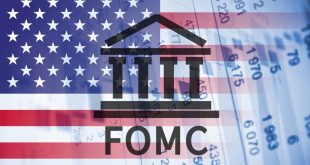The S&P 500 is expected to close the week higher than 4,400, despite a decline in consumer confidence. Meanwhile, US Treasury bond rates have stabilised after rising more than 10 basis points over the course of the entire yield curve on Thursday.
S&P 500 breaks 4,400 as Wall Street closes the week strongly, despite conflicting economic signals and the Fed’s hawkish outlook. The Nasdaq 100 is up 2.05% at 13,798.56 as of this writing, while the S&P 500 is up 1.54% late Friday, holding steady at 4,414.57, on pace for gains of seven weeks. The Dow Jones Industrial ended the day up 1.20% at 34,298. This was the laggard.
The yield on the benchmark 10-year Treasury note, which supports stocks, decreased to 4.6161% on Thursday following a spike on Thursday that was also attributed to a lower-than-expected 30-year bond auction. The leaders were megacap growth stocks, up 1% to 1.9% for Nvidia, Amazon.com, and Microsoft.
While investors anticipated important economic data coming up next week for additional clues on the direction of monetary policy, Wall Street’s main indexes saw gains on Friday as a decline in longer-dated Treasury yields supported megacap growth stocks.
After Federal Reserve Chair Jerome Powell’s hawkish remarks ended the S&P 500 and Nasdaq’s longest winning streak in two years, stocks recovered sharply on Thursday.
Powell’s comments, which hinted at the potential for additional tightening if necessary, caused traders to reevaluate their expectations regarding Fed rate cuts. They are still pricing in a 62% chance of a rate cut of at least 25 basis points in June, though.
Information technology led all 11 major S&P 500 sectors with a 1.6% increase in trading. Healthcare stocks fell 0.5%, trailing the overall market.
Simply put, markets are seasonal for the majority of the year. October’s correction by traders was fairly strong, and with year-end approaching, it appears that the markets are attempting to rise.
Investor attention has shifted to reports on consumer and producer prices as well as retail sales in the coming days, which will further shape interest rate expectations after a week that has been largely devoid of economic data.
According to data released on Friday, household expectations for inflation increased again in November, while consumer sentiment in the US declined for a fourth consecutive month. Inflation is still significantly higher than the Fed’s 2% target, despite the direction continuing to be somewhat lower. Wyett continued, “Economists don’t think inflation will decline enough for the Fed to be able to consider cutting rates anytime soon.
The Dow Jones Industrial Average was up 135.06 points, or 0.40%, at 34,027.00, the S&P 500 was up 27.81 points, or 0.64%, at 4,375.16, and the Nasdaq Composite was up 135.45 points, or 1.00%, at 13,656.90.
Plug Power plunged 41.2% after the hydrogen fuelcell maker raised going concern doubts.
For the second consecutive quarter, Illumina’s shares fell 13.7% as the gene-testing company lowered its full-year profit projection. On the NYSE, advances outnumbered decliners by a ratio of 1.52 to 1. On the Nasdaq, declining issues outnumbered advancing ones by a ratio of 1.11 to 1.
While the Nasdaq recorded 267 new lows and 35 new highs, the S&P index recorded 19 new 52-week highs and 15 new lows.
 Noor Trends News, Technical Analysis, Educational Tools and Recommendations
Noor Trends News, Technical Analysis, Educational Tools and Recommendations





